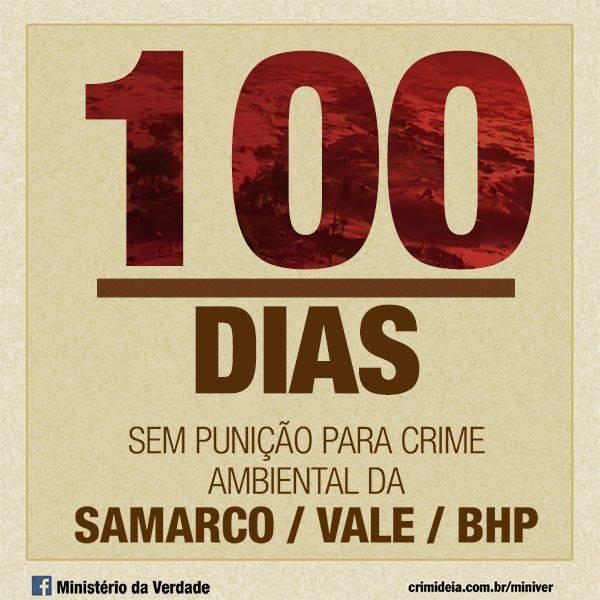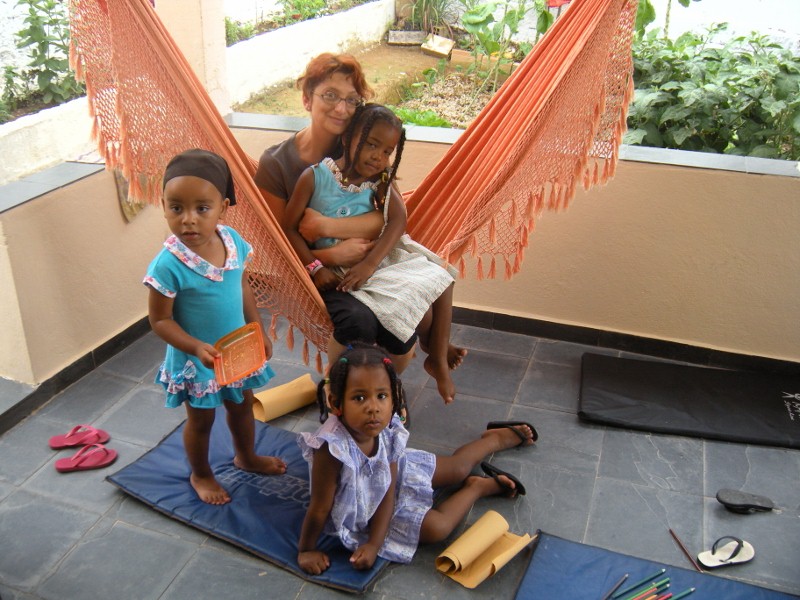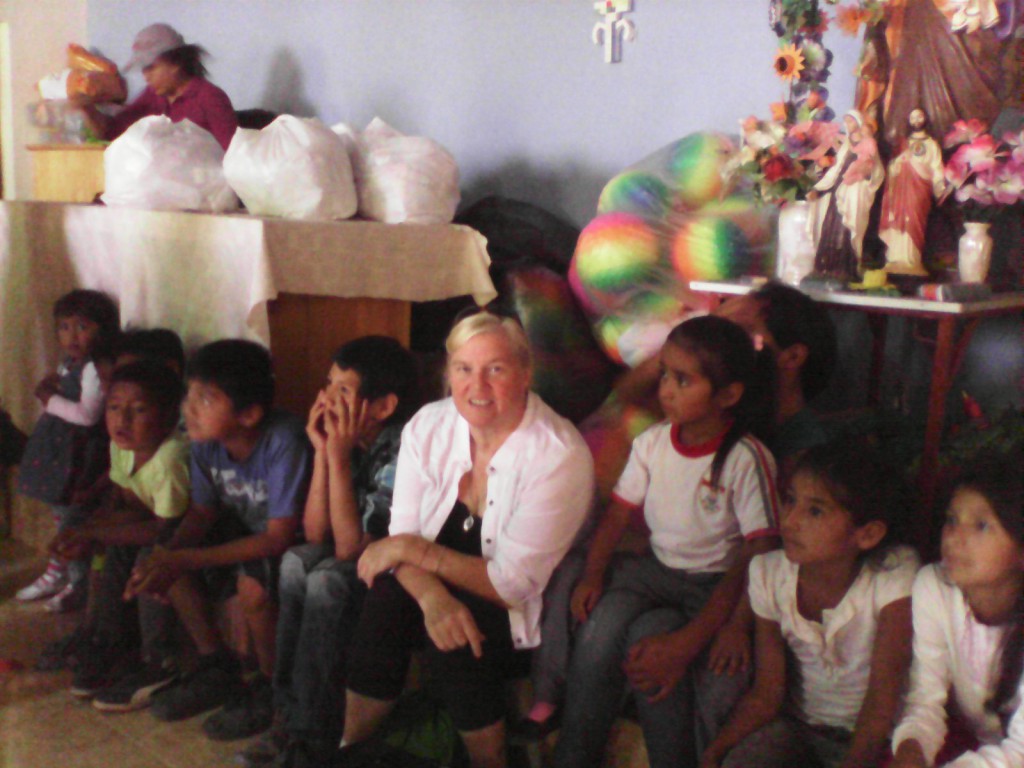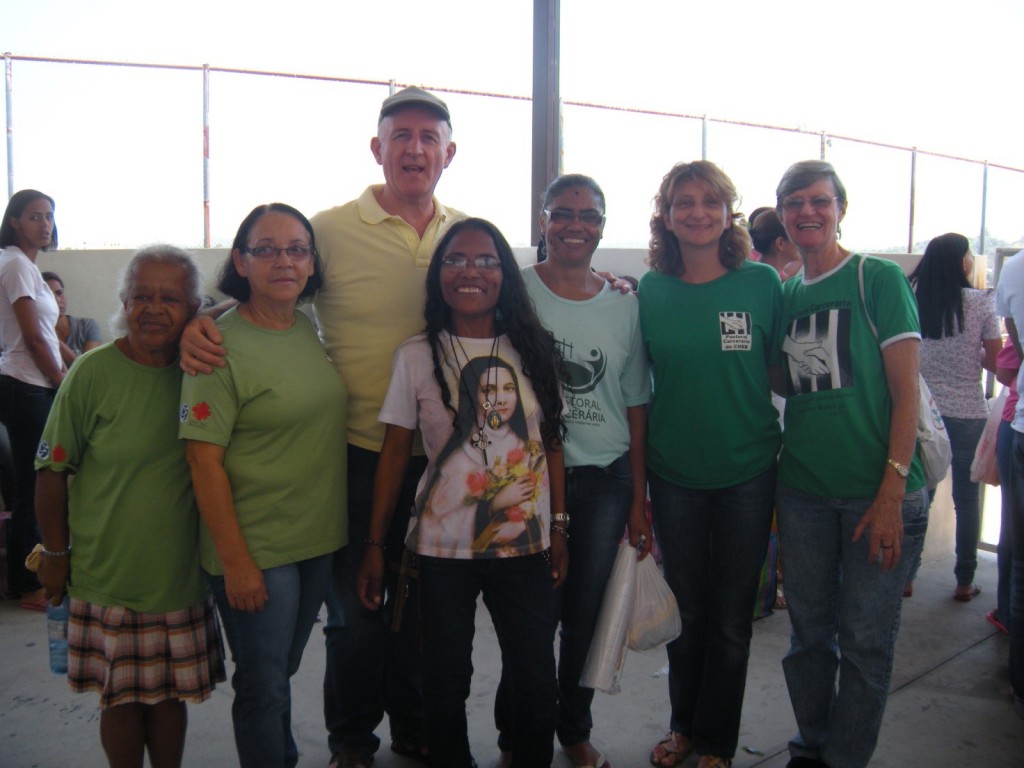 100 days of the biggest environmental crime in the history of Brazil.
100 days of the biggest environmental crime in the history of Brazil.
17 people dead, destroyed an entire community, toxic sludge that destroys Rio Doce, walking 600 km to the Atlantic Ocean and contaminate it.
100 days without any concrete plan for the recovery of Rio Doce.
100 days of absolute impunity.
100 days without anyone going to jail.
Day November 5, 2015 it seems to be a calm day in the community of Bento Rodrigues, a small town in the interior of Minas Gerais, with 600 inhabitants. That day, at 16:30 pm, the mobile phones of the people began to sound like screams coming from far away. Cries warned the dam failure containing the mud of Samarco mining. (Vale).
A river of mud at a terrific speed, which was directed towards the community, and in short time, hit another to enter Rio Doce and then into the ocean and contaminate it.
A toxic sludge with its 15 meters high of violence and destruction.
The violence destroyed forever the river, vegetation, wildlife, community, leaving red sludge making no longer possible to generate life.
100 days have passed and still remains immune, the news is set aside as if nothing had happened, something that does not matter anymore, to return to a superficial and false normality.
But normality is the one of injustice, normalcy is king in the profits of the multinational, Vale and company, not yet claimed responsibility for what occurred.
Faced with this serious situation, the state government did not treat this as an emergency, leaving the company the task of solving the problem with its own media, lawyer, operating engineers and scientists monitoring … at its benefit and interest.
In 2013, a commission denounced the irregularity of the dam due to increased erosion of the mountain that endangered the safety of it. A danger caused by the exploitation of the territory. At the time of the disaster, it was found that the company did not have an emergency plan and no security measures were taken.
In Minas Gerais, there are 754 dams containing waste sludge from mining companies and of these, 42 do not have security certification. Realising corruption, false balances, interest… We are talking about multinational companies that make billions.
In Minas, mining companies and politicians were always partners, like two old friends together in a system that creates benefits, earnings, but not for the common good, not for the people, not for our sacred land.
This environmental disaster involves all of us, because the damage is global, not just local, and always will be a large open wound in the history of this country.
Irrecoverable permanent damages, such as the death of people and an ecosystem that will never be the same.
Fraternity Campaign of the Catholic Church in Brazil this year, has the theme “Common home: Our responsibility”, «Scorra come acqua il diritto e la giustizia come un torrente perenne».
(Amos 5: 24). The Earth is our common home, so destroyed, abused and exploited house. We must work for an ecological culture that can defend, love and heal the world and where we are all responsible for this healing.
And to care for the earth, we must also challenge the capitalist system that explodes, kills and creates inequality by first placing the money and not the value of life.

100 days spent, 100 days that have not been forgotten, and we must not forget, we can not build the future with this lame and sick, and should stop reporting.
The common house, our responsibility!
Mineral extraction by mining companies destroy the mountains of Minas Gerais, as well as in other countries.
During extraction work, highly dangerous chemicals that contaminate soil, water and create toxic sludge dams threaten the people and communities are used.
Emma Chiolini CLM(Fonte: artigo de Marcus V. Polignano, revista Manuelzão, UFMG)






